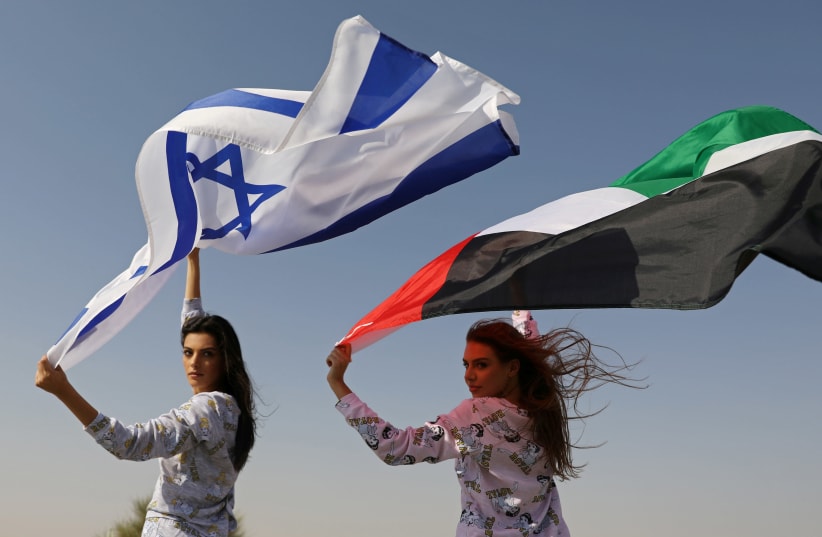After a very tumultuous period, the Arab Spring’s revolutionary fervor has finally yielded new energies which can invigorate each Arab nation, the Muslim world as a whole and inspire other nations. It seems to have also influenced other movements in Europe, the US and elsewhere.
These new energies for change are appropriately coming from the Muslims themselves. After much turbulence, a new Arab Muslim voice is emerging from the Abraham Accords, in the face of the current security threats in the Middle East. This voice embraces tolerance and cooperation and rejects politically and religiously inspired extremism.
It can serve as a model for the world (where much repression and oppression are still taking place) regarding the acceptance of ethnic and religious minorities among them and in neighboring nations. There seems to be a new commitment from these leaders to protect minority religions within the Muslim heartland and slowly initiate movement towards freedom. This can change the world by showing it is possible to move away from polarization, enmity and violence, and replace them with a focus on cooperation, empowering the people and unleashing their creativity.
Think tanks of prominent philosophers, writers and intellectuals, summits of imams, and interfaith encounters have been laying the groundwork for years, preparing the Arab collective consciousness and inspiring a new tolerant model of religious and intellectual climate. These organizations can monitor the new possibilities open to the Arab and Muslim world and address the obstacles they face. They include international participants (Christians, Jews and others) who can contribute to the discussion and to disseminate their mission.
This newly dawning era should be supported by all – where the Abrahamic religions are set to resolve their religious divergences in ways never done before. The world has shown itself, over the last 2,000 years, largely incapable to handle peacefully religious conflict among and within the Abrahamic religions. Learning about each other’s pain and suffering in interfaith and inter-cultural encounters can now be the catalyst for changing the world’s direction from acrimony, conflict and war towards cooperation, wisdom and peace.
This new Arab movement of tolerance is developing an entirely new voice, both political and religious, devoid of demonization and wholesale blaming of the “other,” and of the neglect of its people’s welfare.
By renouncing the model of ongoing conflict, these Arab leaders are proving that the achievement of one’s strong religious identity does not have to be built upon the destruction or devaluation of another. It is possible to achieve social, political, religious and economic maturity and empowerment with tolerance and acceptance of other religions.
Furthermore, these leaders seem to accept some of the best of what the West can offer to the Arab world, leave aside what they do not like, and offer the West a revitalized Arab/Muslim vision and wisdom. With its emphasis on the importance of faith, of giving time to the immediate and extended family, tribe and community, the Arab world can add its part in guiding humanity to a fuller perspective on life and well-being.
The paradigmatic shift in attitudes towards Israel and Judaism and giving up the rallying cry against the Jewish state are freeing up precious rebuilding energies; it can be a model for all the others who still redirect the potential of their people towards violence in the name of supremacy, or those who still allow antisemitism to be unleashed to quell the turbulence in their societies.
This new political reality is calling for a new geopolitical structure in which the Arabs can exercise their influence to design a world that does not confront the older structure but helps guide it towards a much better, win/win solution. Perhaps this will be the first time in history that a large religious bloc could gain its power by working towards the unity and healing of mankind, instead of a dominance that will eventually end.
Championing efforts against antisemitism by these leaders can be a highlight of this new geopolitical power. Such an approach would make a positive contribution to the evolution of world consciousness.
It is thus crucial for those seeking peace in Israel, the US, Europe and elsewhere, to fully support these accords. It is the kind of train ride that can attract other parts of the world, including the Palestinians, to join and participate. And who knows, eventually even the Iranians. It is an exciting and revolutionary period that awaits us.■
The writer is founder and president of the International Trauma-Healing Institute USA and ITI-Israel. You can contact her at Gina@GinaRoss.com
